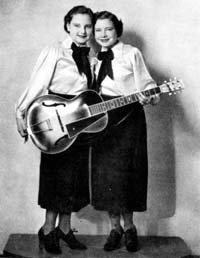Distant relatives of mine built this “fort” in southern PA in 1745. [Yes, a stone farmhouse was considered a fort back then!]
The fort/house had two things going for it: fireproof walls and a fresh water spring in the basement (see photo below).
The follow text is excerpted from the much longer description of regional forts the Report of the Commission of the Frontier Forts of Pennsylvania (1896).
Mr. Croll says of the Zeller house of refuge that it is an old and well-preserved building built of solid masonry, and, in part, ornamented with carved stone door-jambs and head stones or lintels. It was erected in 1745 on land owned by Heinrich Zellers and now in possession of his eighth lineal descendant, Mr. Monroe P. Zellers. Even then it was built for protection and to guard against attack, the original windows being mere port holes, as shown in some still preserved. Many traditions still cluster about this old landmark. It is related of the original Mrs. Zellers that she superintended the construction of the house, whilst her husband was out on an expedition against the Indians, and that her laborers were colored slaves. It is said, also, of this same Christine Zellers that one day, whilst alone in the fort, she saw three prowling savages approaching and heading for the small hole in the cellar shown on the picture attached. She quickly descended the cellar steps and stationed herself at this window with an uplifted ax. Presently the head of the first Indian protruded through the hole when she quickly brought down the weapon with an effective blow. Dragging the body in, she disguised her voice and, in Indian language, beckoned his companions to follow, which they did and were all dispatched in like manner. It was here that the community found refuge during the Indian troubles, at which time it is said to have been attacked.
The following is taken from a chapter in the book entitled Notable Women of Pennsylvania, edited by Gertrude Biddle and Sarah Lowrie (Philadelphia, 1942) and is from a short biography of a French woman named Clothilde de Valois:
The history of Clothilde Zeller, born in De Reni of a cadet branch of the Valois family, a subject of France, but through the persuasion of the Governor Keith and the astute Secretary Logan of Philadelphia a citizen of Pennsylvania in pioneer days, is a typical one of a European immigrant to these shores.
Born during the liberalism of the Edict of Nantes when it was the fashion for ladies of high rank to be educated, Margaret de Valois, Countess d’Augergne, in her chatelaineship at LeMont Dore left a reputation for letters, while the Countess Clothilde de Valois de Reni, her many-times-removed cousin, fell in love with a scholar. In her teens, she married Jacques de Sellaire, or, if one knew as the family across the border, Von Zeller of Castle Zellerstein, Zurich, and fled from France with him and their children after the revocation of the Edict of Nantes to Holland.
Shortly after their son’s marriage in Holland the Zeller’s journeyed to England and the Lady Clothilde, as she was recorded there, place herself, her children, and husband under the protection of Queen Anne, who made them welcome not only in England but, should they choose, in her colonies across the sea. With many of their race and a considerable number of their own class and position, they gladly accepted the chance to begin again in a new world. Clothilde at this time was the sole head of her family, her husband having died, either in London or before their ship arrived at New York in June 1710.
These French immigrants, together with many of the Palatinate Germans who were coming to the Americas for the same reason – freedom to worship God according to their own conscience, had a bitter experience of scant welcome and indifferent choice of lands along the Hudson River. The Zeller’s and the French group – which had placed themselves with the Lady Clothilde for protection and advice found even their second venture father north, in the Dutch-English province at Schoharie, little to their comfort though they named their settlement L’Esperance! It was at this juncture that Governor Keith of Pennsylvania paid them a visit and, impressed with their character and worth, invited them over to Pennsylvania by a well known and already much used route down the Susquehanna River. Being French and already twice warned, the Lady Clothilde was wary of promises. So Jean Henri, her eldest son, with an Indian guide was sent ahead to prospect. Perhaps it was she who stipulated rich lands as well as clear titles, or perhaps Jean Henri, now in his thirties, was already aware of the soil from a farmer’s standpoint. At all events he journeyed down the Susquehanna below where the great river branches at what is now Sunbury, paddled up a creek of some dimensions still known as the Swatara, and so across what is now the Lebanon Valley to a fertile region watered by the Tulpehocken, in which black walnut trees of great age and fine verdure flourished. In the country of Jean Henri Zeller’s mother’s people, the French tradition was that black walnuts meant fertility and a deep soil. So armed with this assuring promise, young Zeller journeyed by foot and canoe back to the Schoharie in northern New York and made his report to his mother and her party.
They accepted the good sign at once. Rafts were built, provisions were packed, utensils, canoes and baggage were assembled and the contingent set forth, arriving at the Mill creek region not far from the present Newmanstown and the larger settlement of Womelsdorf in 1723.
Here the Zellers built a fort to protect themselves and their neighbors and procured deeds for land from three Penns – John, Thomas and Richard. Somewhat later they helped to start the first church of that vicinity. Under pressure of Indian raids, in 1745 they rebuilt their log fort with stone outside and plaster over wattles inside, placing over the door the carved emblem of their faith and the family crest as knights of the Holy Roman Empire. About this time the Zeller name was Germanized – Heinrich Zeller – for the America all about them was German in speech and behavior.
Clothilde de Valois, who saw all this and much else come to pass, lived to be past eighty and to remain a personage long remembered in her family, a tradition of dignity, of authority, land of exalted if shadowy backgrounds, remaining extant generation after generation.






 This is one of the scariest books I’ve read in a long time—and it’s not fiction! Published in 2002, it chronicles the strange tale of
This is one of the scariest books I’ve read in a long time—and it’s not fiction! Published in 2002, it chronicles the strange tale of  I’ve always enjoyed
I’ve always enjoyed